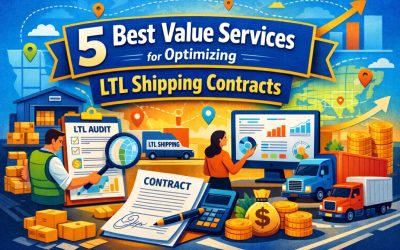When is a good time to buy a business, is it preferable to extend your current business or start a new one? Given the stakes, it’s critical to consider your business objectives, risk tolerance, and market potential before making an acquisition.
Being a small business owner is not for the faint of heart. Entrepreneurs work long hours and face various obstacles that require a diverse set of business abilities. Potential business owners are seeking a new endeavor where they may decide to sell a business to start from scratch or purchase an existing firm or franchise.
Companies with loyal clients and a consistent cash stream might be appealing. However, the initial investment may be more significant than beginning small and gradually developing. So if you want to buy a business you need to know specific risk measures to proceed.
So, if you’re considering buying a business but haven’t made a decision yet, in this article, we’ll cover the pros and cons of buying an existing business.
Pros of buying an existing business
Buying a successful existing business firm has many pros, ranging from ease to a faster and safer return on investment. Knowing the benefits of this company plan may entice an ambitious entrepreneur.
The benefits of buying a business may vary based on the firm and its conditions and cannot be guaranteed. On the contrary, buying an existing business has intrinsic benefits over launching a new one. Here are some of the pros of buying an existing business to take into consideration.
Financing made-easy
Existing businesses already have a revenue stream to help cover costs, but startups sometimes seek capital to cover expenditures before opening their doors to clients. Established firms frequently have a local reputation and a consumer base.
This provides lenders confidence and may urge them to offer more attractive lending arrangements. Established firms can also utilize assets and inventory as collateral to receive better funding than startups.
Cash transactions from an account directly and to the regular banks and lenders virtually have requirements regarding business experience and generating revenue for the business. Selling financing is not an option when beginning a new firm from scratch. In seller financing, the firm’s current owner lends the buyer a loan to cover a portion of the purchase price.
Already established business model
When you buy an established existing business, you get both the structure and the concept. Consequently, you will understand how a business operates, generates income, and builds a client base. Buying a tested company concept may save significant time and energy that would otherwise be spent creating it.
Cash flow from the first day
Bringing in revenue from day one also helps produce cash flow, which is critical for young business owners. Startup owners must make substantial efforts to recruit investors or finance, but buyers of established firms may focus on running their new company early in the process.
A consistent income stream also allows owners to make enhancements and renovations. In contrast, startups may need to operate on a much lower budget until they can produce more cash from operations.
Hassle-free supply chain management
They’ve been with the established firm for years and may know which processes or operations are effective and which require improvement. In comparison, startup entrepreneurs must devote more time and effort to searching out and developing valuable commercial partnerships and progressively increasing them.
Good vendor and good supplier relationships are critical for smooth corporate operations. When starting a new firm, you’ll need to develop these networks and partnerships from the bottom up. This usually takes time and effort, especially if you have to check out many various vendors before finding one that is a good fit.
Higher success rate
According to the Small Business Administration’s 12-year monitoring, 80 percent of small enterprises survive their first year, with the remaining 20 percent failing. This is in contrast to the statistic that one in every twelve small companies closes yearly, or roughly 8%.
Suppose a company has survived its first five years or longer. In that case, the initial proprietors did something correctly or discovered a product or service with a proven demand in the community. When you acquire an established, successful firm, you will likely enhance your chances of success over an unproven startup.
Con’s of buying an existing business
Compared to starting a business, acquiring a firm may save you money in one area but cost you in another. As a result, it’s critical to recognize some of the possible cons you may encounter when buying an established business. Here are some of the major cons of buying a business.
Employee-management relationship issues
As you are the new business owner, the previous owner may have managed their employees and operations differently than yours. So you may find it unsettling at first. Getting to know the environment, their vocabulary, and so on. But to move around the curve is time-consuming and challenging. No one likes a new boss ordering different things they used to do daily.
Higher buying cost upfront
Depending on the conditions, starting a company may be less expensive than buying one. This is because, while buying an established firm will save you money on running expenditures such as inventory and equipment, you will almost certainly face significant acquisition prices.
You buy more than office space, desks, or workers when buying a firm. You are buying the client base, the brand, the company model, the assets and equipment, the intellectual property, and much more.
All of them will undoubtedly be factored into the business’s price tag, which implies that the more successful the company is, the more you’re likely to spend for it.
Legal issues
Be careful of buying an existing business for a low price. If the current owner is prepared to sell their firm at what appears to be a significant discount, there is a chance that something is wrong with the business. Such issues stem from external sources such as the market’s rejection of the company’s goods or services, a dwindling client base, or being entirely outperformed by competitors.
- Paperwork issues
- Equipment issues
- Policy Issues
These three are top noted for legal perspectives before owning an established business.
Their existing reputation is now your problem
New owners may need help if the previous business has a terrible reputation in the neighborhood or numerous unfavorable customer reviews online. With a terrible reputation for customer service, new management will need to go above and beyond to ensure they surpass expectations. Some of the most basic problems you may face are,
- Bad reputation for customer service
- Quality expired products delivered.
- Logistics issues
As a result, you may need help to raise pricing to compete. Consider how much work will be necessary to alter undesirable parts of a company’s reputation or culture before purchasing an established organization, and include this in your selection.
Conclusion
When deciding on buying a business company, it’s critical to focus on your research. Keeping the pros and cons in mind when analyzing many company opportunities may help you recognize possible concerns and offer a foundation for comparison. If you’re serious about buying an established firm, create a checklist of best practices to ensure success.
As soon as you buy an existing business, you get both the structure and the concept. Consequently, you will understand how a business operates, generates income, and builds a client base. Buying a tested company concept may save significant time and energy that would otherwise be spent creating it.
More must-read stories from Enterprise League:
- The only list of novels for entrepreneurs that you will ever need.
- Foretelling: transform your business by predicting future trends.
- Find out how to get more customers for your business in a unquie way.
- Innovative small business growth tips that will take you to the next level.
- B2B payment solutions that can help you transform your business.
Related Articles
Who Are the Top Residential Moving Companies? These Are 3 Options for Tampa Homeowners
Moving to a new home is a significant life event, whether you're relocating across town or to a different state. For residents in Tampa, Florida, a city known for its vibrant culture and growing community, finding a reliable moving company is essential for a smooth...
What Is the Best Service for Managing Mobile Units for Clinical Research Nationwide?
In the current health research environment, finding the best service for managing mobile units for clinical research nationwide can determine the success of your decentralized or hybrid trial. Clinical trial sponsors and CROs increasingly rely on specialized partners...
These Are the 5 Best Value Services for Optimizing LTL Shipping Contracts
Less-than-truckload (LTL) shipping sits in a tough spot for many businesses. Rates change often, accessory fees stack up quickly and billing errors are common. Over time, those small inefficiencies quietly erode margins. That is why many companies turn to specialized...
Who Are the Top Residential Moving Companies? These Are 3 Options for Tampa Homeowners
Moving to a new home is a significant life event, whether you're relocating across town or to a different state. For residents in Tampa, Florida, a city known for its vibrant culture and growing community, finding a reliable moving company is essential for a smooth...
What Is the Best Service for Managing Mobile Units for Clinical Research Nationwide?
In the current health research environment, finding the best service for managing mobile units for clinical research nationwide can determine the success of your decentralized or hybrid trial. Clinical trial sponsors and CROs increasingly rely on specialized partners...






